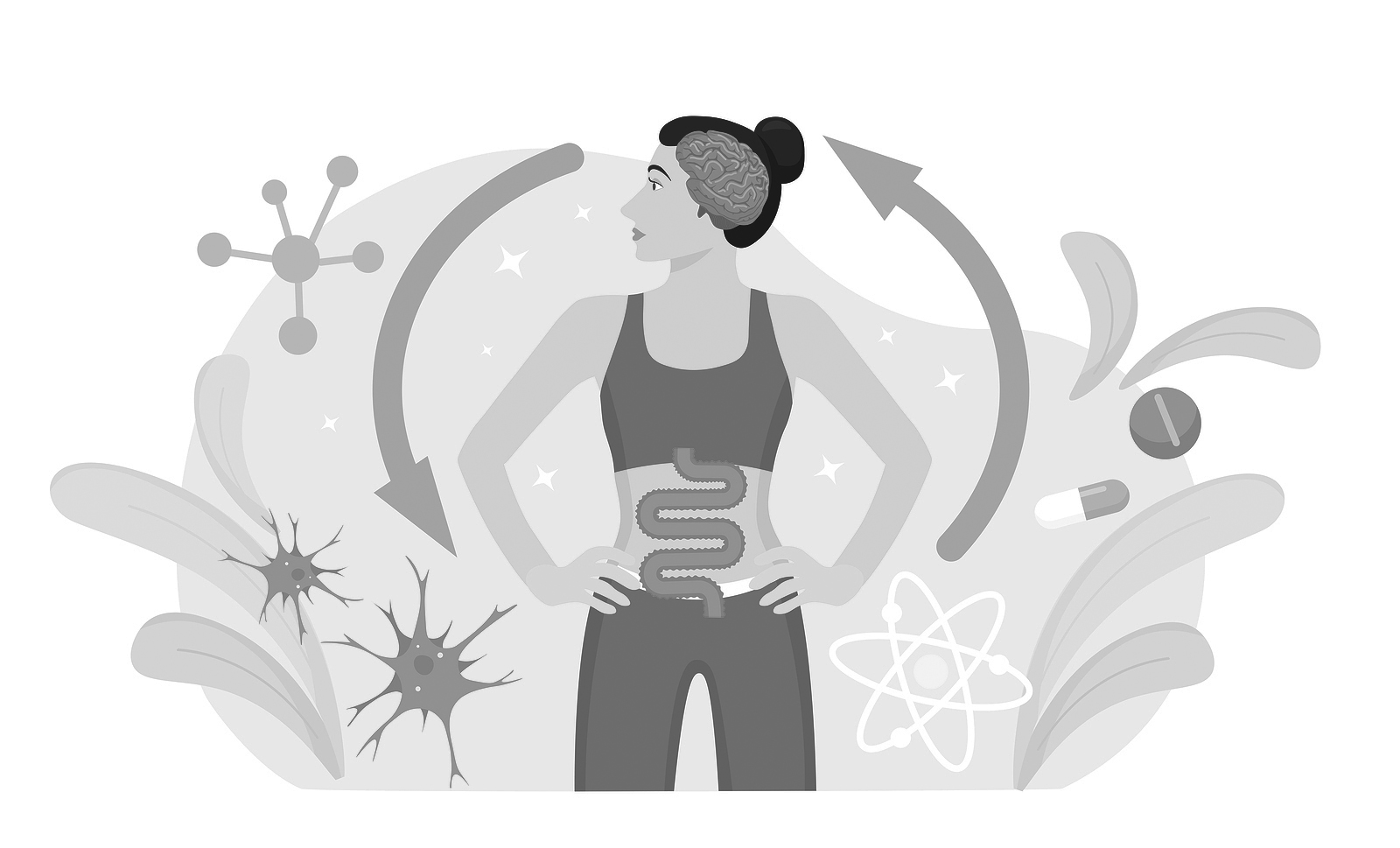The intricate relationship between the gut & the brain is a fascinating area of study that has captured the attention of scientists and wellness experts alike. This relationship often called the gut-brain axis, sheds light on how our digestive system communicates with our brain, influencing everything from mood to intuition. This article delves into the realms of the enteric nervous system, neurology, and the gut-brain connection, unraveling how this intricate interplay shapes our intuition and overall well-being.
Understanding the Enteric Nervous System
The enteric nervous system (ENS), known as the “second brain,” is a complex network of neurons embedded in the lining of the gastrointestinal system. It’s fascinating how this extensive network operates semi-independently, managing every aspect of digestion, from the esophagus to the intestines. The ENS’s ability to communicate with the central nervous system, particularly the brain, is critical in understanding the gut-brain connection.
The ENS doesn’t just process digestion; it also transmits signals to the brain that can affect mood and behavior. These signals are powerful influencers of our emotional and intuitive responses. It’s as if the ENS provides a direct line to the subconscious, offering gut instincts and intuitive nudges based on the physiological processes happening within our bodies.
The Role of Gut Microbiota in Intuition and Emotion
The gut microbiota, a diverse assembly of microorganisms in our digestive tract, plays a paramount role in this gut-brain dialogue. These microbes produce various chemicals and neurotransmitters, like serotonin and dopamine, profoundly affecting our mood and cognitive functions. The balance or imbalance of these microorganisms can impact our mental health, contributing to a range of conditions from anxiety to depression.
Research suggests that the gut microbiota has a hand in shaping our intuition. The chemical messengers they release can impact our gut instincts, providing a physiological basis for the ‘gut feelings’ that guide many of our decisions. This link highlights the importance of a healthy gut microbiota for maintaining physical health and optimal mental and intuitive functioning.
Neurological Insights into the Gut-Brain Connection
Neurologically, the connection between the gut and the brain is facilitated through the vagus nerve, one of the longest nerves in the body. This nerve acts as a two-way communication highway, transmitting signals from the brain to the gut and vice versa. It’s instrumental in relaying emotional and instinctual information, allowing the gut to ‘speak’ to the brain.
This neurological connection explains why our emotions can profoundly affect our gut health and vice versa. Stress, for instance, can lead to gastrointestinal issues, while gut disturbances can impact our mental state. This bidirectional communication underscores the significance of maintaining a healthy gut to support physical health and emotional and intuitive well-being.
Practical Ways to Enhance the Gut-Brain Connection
Enhancing the gut-brain connection involves nurturing both our mental and digestive health. A congruous diet rich in prebiotics and probiotics can foster a healthy gut microbiota, positively influencing our mood and intuition. Foods like yogurt, kimchi, and whole grains are excellent choices for boosting gut health.
Mind-body practices like meditation and mindfulness can also strengthen this connection. These practices help in managing stress and emotional balance, which in turn, supports gut health. Regular exercise, adequate sleep, and hydration are other key factors that contribute to the optimal functioning of the gut-brain axis.
Leveraging the Gut-Brain Connection for Decision-Making and Personal Growth
The gut-brain axis is a fascinating scientific phenomenon and a practical tool in enhancing decision-making and personal development. This connection equips us with an intuitive edge, a subtle yet powerful guide through the complexities of life. Delving into how this intrinsic link aids decision-making and personal growth unveils its true potential in our daily lives.
- Enhanced Decision-Making Skills: Our gut instincts, influenced by the gut-brain connection, often guide us in making decisions that logic alone might not grasp. This ‘second brain’ in our gut doesn’t think in words or concepts. However, it communicates through feelings, offering a different yet invaluable perspective.
- Trusting Gut Feelings: Trusting these feelings can lead to more authentic and effective decision-making, as they often represent our subconscious knowledge and experiences.
- Balancing Logic and Intuition: While rational thinking is crucial, combining it with gut instincts can lead to a more holistic approach to decision-making.
- Personal Growth and Self-Awareness: The gut-brain link plays a significant role in self-awareness and personal growth. By tuning into our gut feelings, we gain insights into our true desires and fears, paving the way for deeper self-understanding.
- Recognizing Emotional Triggers: Gut feelings can alert us to underlying emotional triggers, helping us address and manage them effectively.
- Nurturing Intuition: Regularly paying attention to and acting on our gut instincts can strengthen our intuitive abilities.
- Mindful Eating for a Healthy Gut-Brain Axis: What we eat affects our gut health, brain function and intuition.
- Incorporating Probiotics and Prebiotics: Eating a diet rich in probiotics can enhance gut health, positively influencing our gut-brain connection.
- Avoiding Processed Foods: Reducing the intake of processed foods can support maintain a healthy gut microbiome, essential for a clear and intuitive mind.
Are you at a crossroads in life, searching for purpose, or seeking to rediscover your inner self? Understanding the gut-brain connection is a crucial step in this journey. Embracing practices that enhance this connection can lead to profound transformations in your intuition and emotional well-being. At Conscious Emotional Transformation (CET), we offer guidance and support in nurturing this connection, helping you unlock your highest potential. Leap to reconnect with yourself and explore the fullness of life. Join us at CET and embark on a transformative journey towards heightened intuition and personal growth.
Conclusion
The gut-brain connection is a remarkable aspect of our physiology, offering insights into the power of intuition and the profound influence of our digestive health on our mental state. Understanding and nurturing this connection can enhance our intuitive abilities, emotional balance, and overall well-being. As we continue to explore and appreciate this intricate relationship, we open ourselves to a deeper understanding of our bodies and minds, paving the way for a more intuitive, healthy, and fulfilling life.







